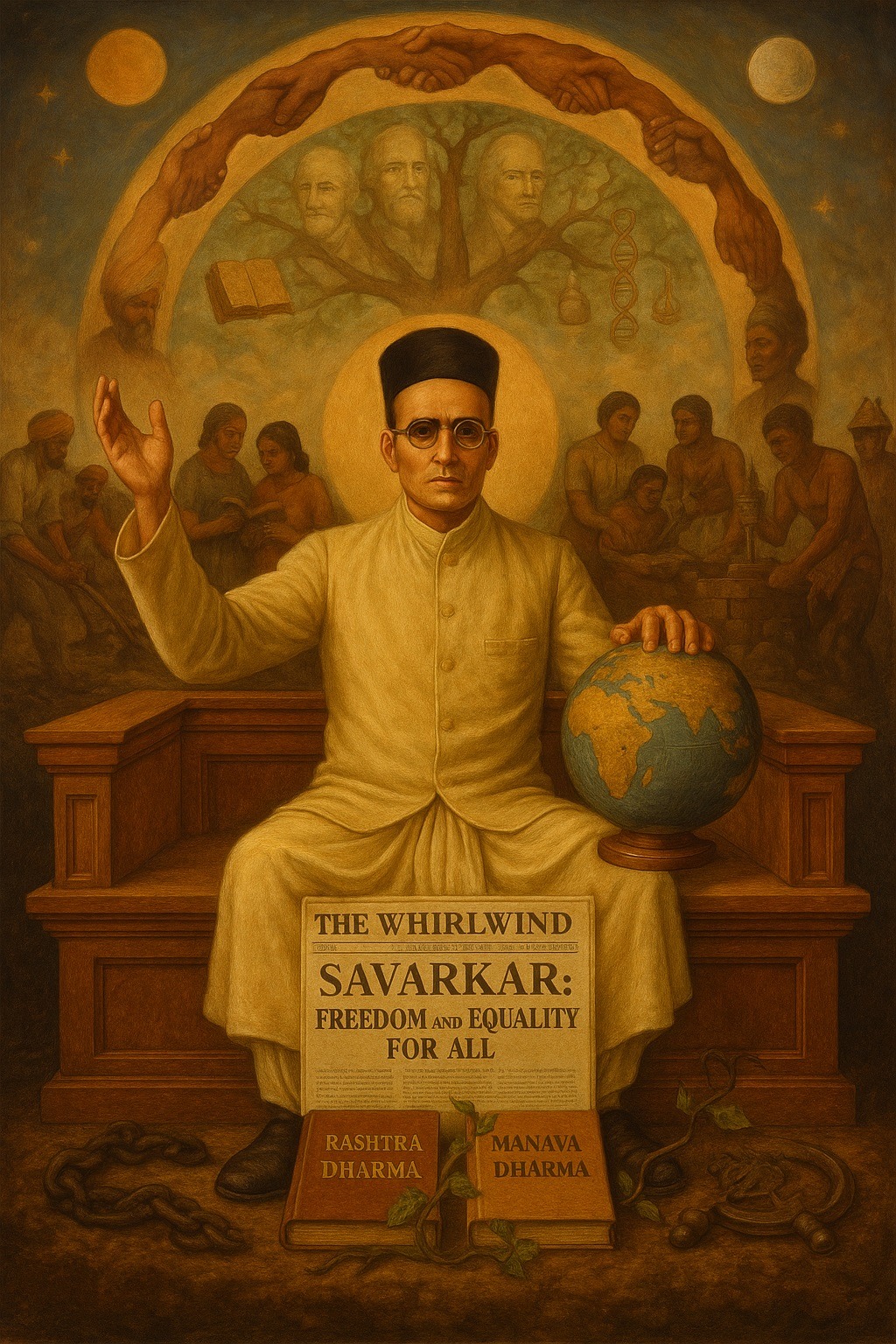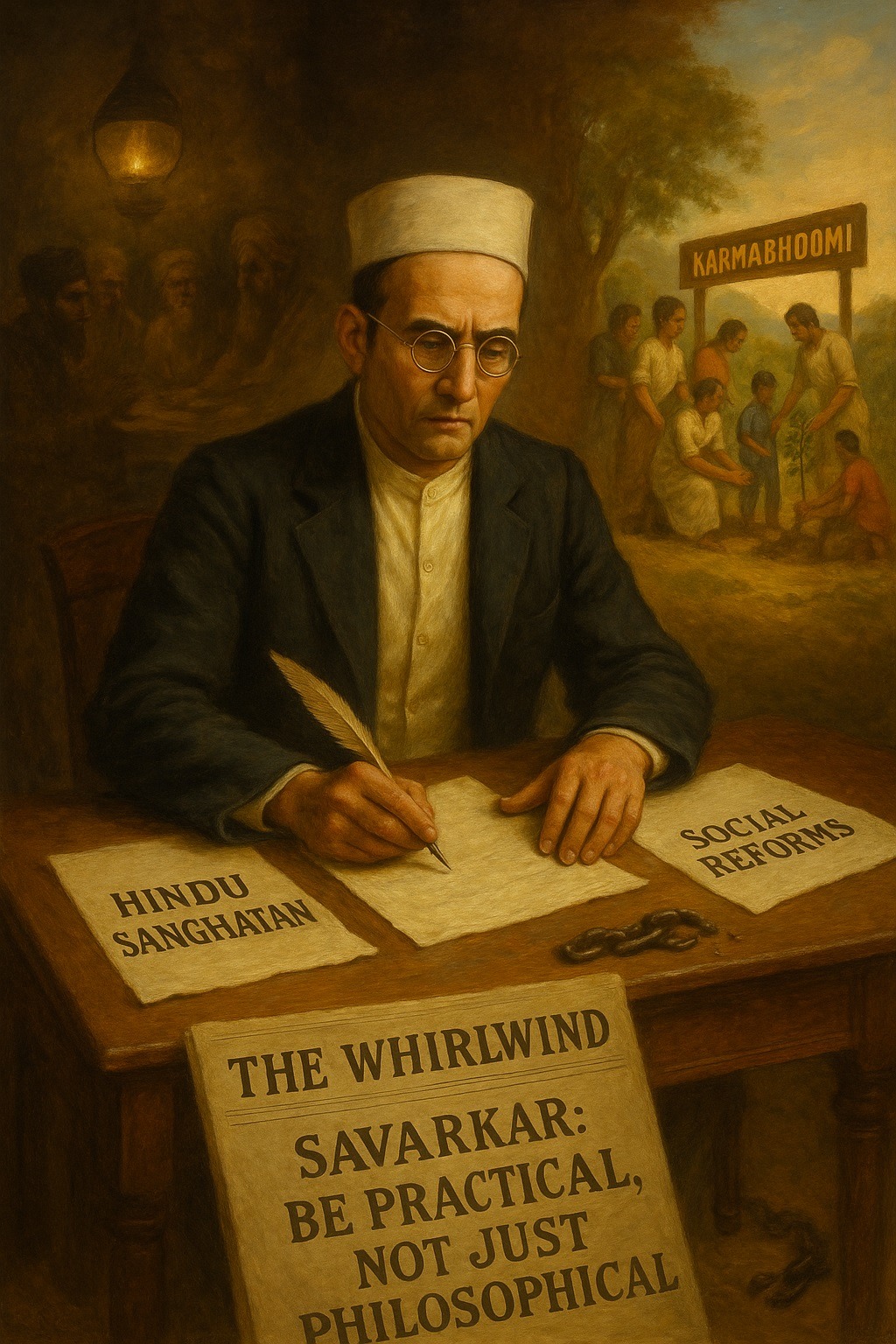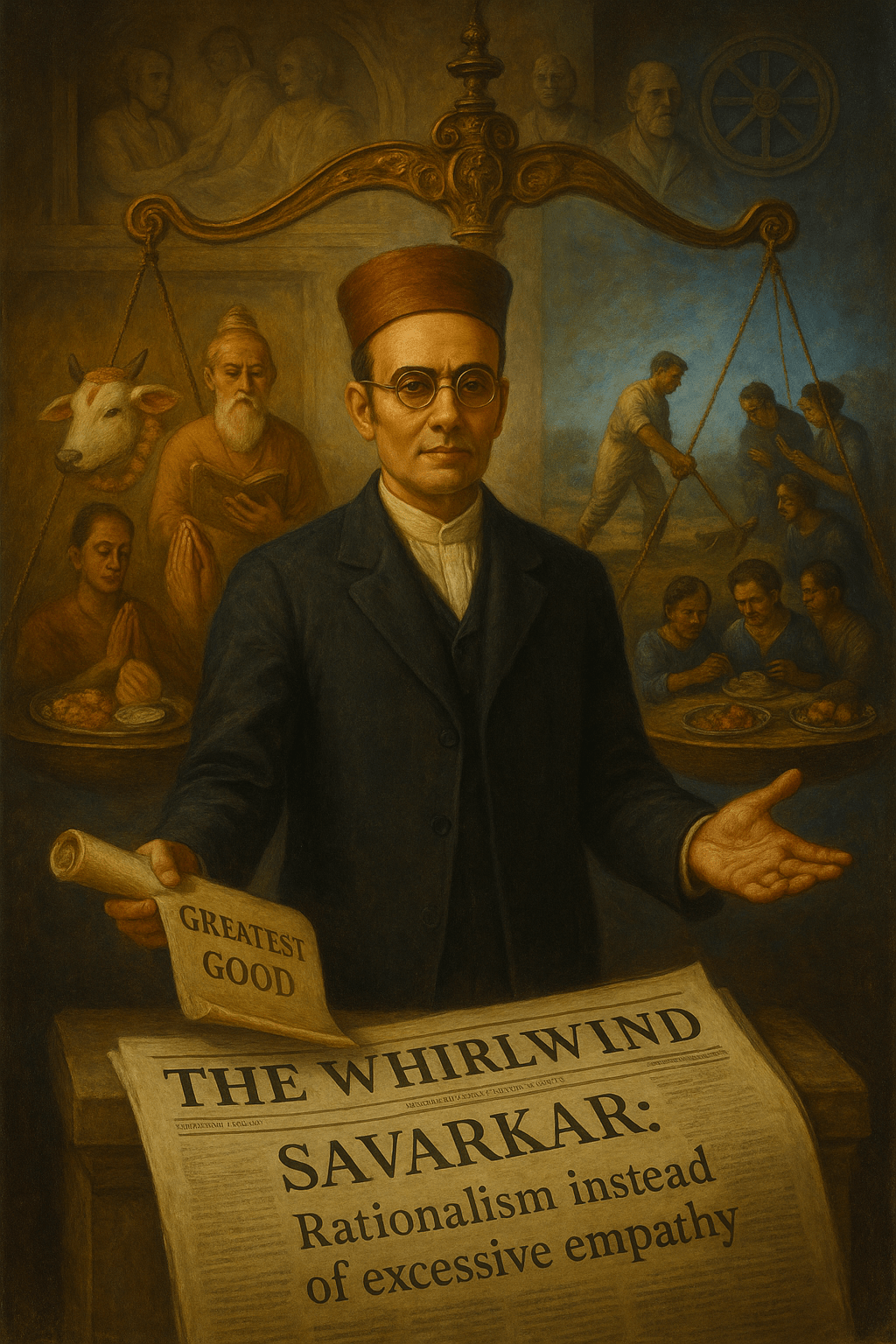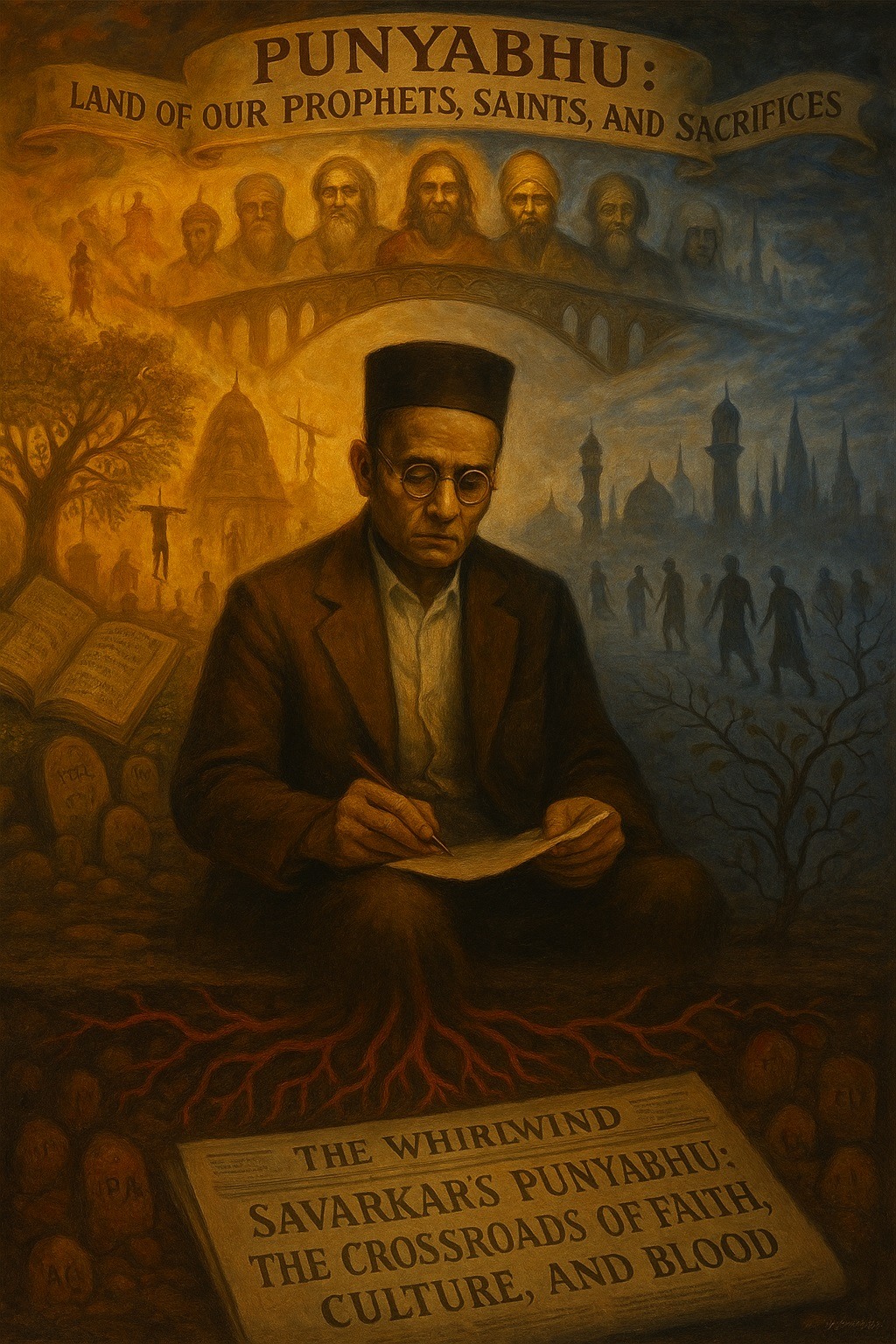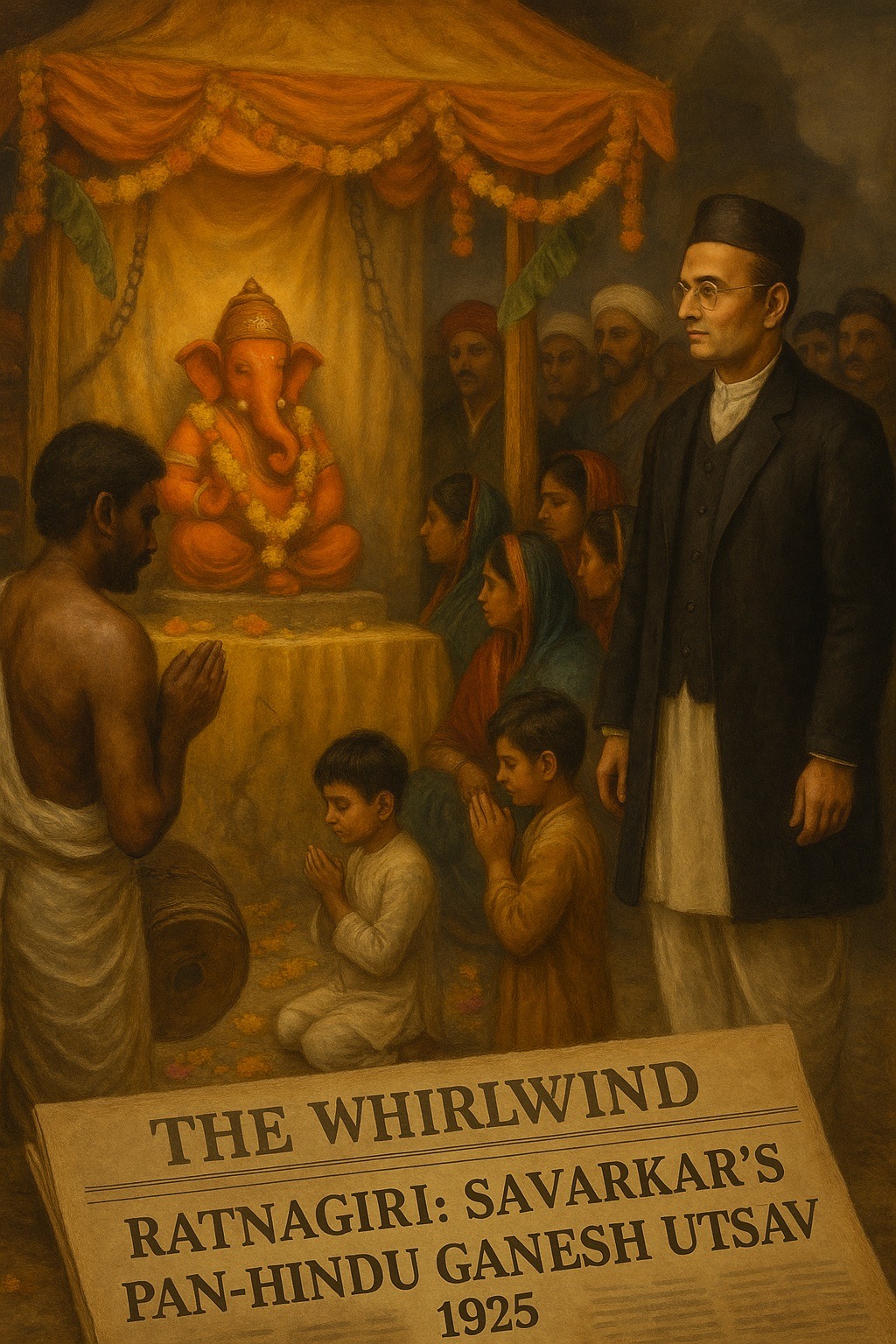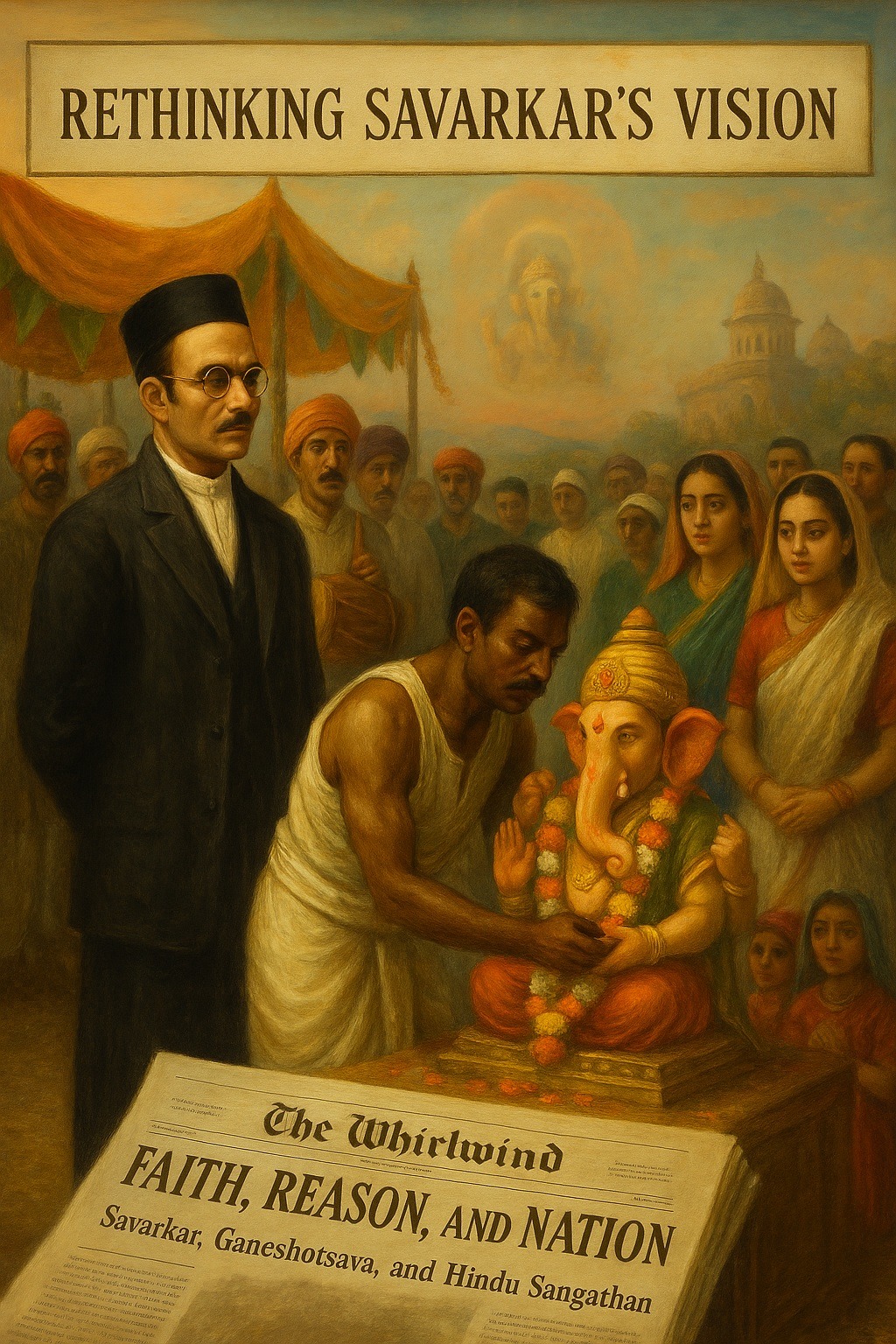Category: Savarkar’s World of Thought
-
Savarkar’s Philosophy & Worldview, Part 12; Savarkar’s Five Philosophical Dimensions (5/6) Vinayak Damodar (Veer) Savarkar embedded a profound sense of realism in his philosophy. Beyond mere pragmatism, his worldview was rooted in adaptability, acknowledging that no ideology, institution, or tradition is universally applicable across all times and circumstances. His understanding of human behavior was dynamic—what…
-
Savarkar’s Philosophy & Worldview, Part 11; Savarkar’s Five Philosophical Dimensions (4/6) Vinayak Damodar (Veer) Savarkar is often remembered for his contributions to India’s independence movement, for his activism, historical writings, and bold ideas. Among his many dimensions, his pragmatism stands out as a defining feature of his approach to social, political, and cultural challenges. Savarkar’s…
-
Savarkar’s Philosophy & Worldview, Part 10, Savarkar’s Five Philosophical Dimensions (3/6) Vinayak Damodar (Veer) Savarkar is often remembered for his unflinching advocacy of nationalism, but was also a man of profound philosophical depth and his philosophy encompassed much more than a call for political independence. In this third installment of our exploration of Savarkar’s five…
-
Savarkar’s Philosophy & Worldview, Part 7; Savarkar’s Agnosticism (4/4) In the ongoing exploration of Vinayak Damodar (Veer) Savarkar’s agnosticism, one of the most intriguing and misunderstood concepts is his use of the term Punyabhu or Punyabhumi, often translated as “Holy Land.” This term has sparked significant debate, with both critics and supporters misinterpreting its meaning.…
-
Religious Tradition and Political Struggle Traditional Roots of the Festival Anant Chaturdashi, observed on the 14th day of the bright fortnight of Bhadrapada (August–September), is one of India’s important Hindu festivals. Traditionally dedicated to Lord Vishnu as the infinite (Anant) sustainer of the universe, it revolves around the tying of the sacred Anant Sutra –…



